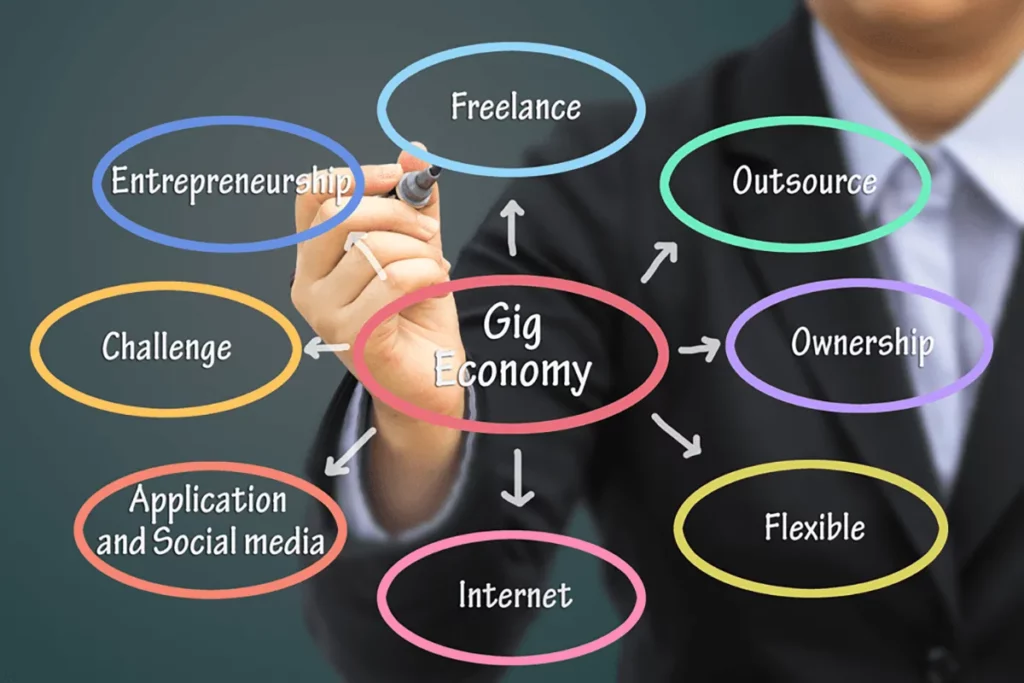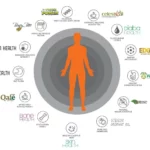Direct selling as a concept has generally focused on meeting individual customer needs. The goal is to understand market trends and adapt to technological advancements that will help predict customer buying habits.
In today’s busy world, many people turn to brands that promote a healthy lifestyle, especially since lifestyle diseases are on the rise, particularly diabetes and high blood pressure. Irrespective of the career paths we choose, we need to prioritise our physical and mental well-being. Neglecting personal growth can affect how we live our lives and influence others.
People are looking at health supplements that support a healthy gut, boost immunity and help them maintain good skin, which will eventually contribute to a fulfilling life. It’s, therefore, essential for companies to engage with customers, gather feedback and use the data to create customer-focused strategies.
On the organisational front, companies should leverage technology to interact with sellers, monitor compensation plans, provide easy access to product information, and offer pre/post-sales services. This way, everyone can work towards a healthier and more sustainable lifestyle.
Corporate Social Responsibility (CSR) is crucial for spreading social messages. Direct selling companies can make a bigger impact by collaborating with charities and NGOs. Activities, such as organising blood donation camps, cancer awareness walkathons and seminars on battling diabetes, not only contribute to social causes but also boost brand recognition and open up new networking channels.
Marketing has evolved, and direct selling is seen as a traditional, yet effective, way to promote products. Companies focus on reaching the right audience by analysing current market needs and predicting future demands.
Technology plays a big role, with companies adapting to changing trends and leveraging social media for a strong online presence. Millennials are increasingly drawn to freelancing for extra income, enjoying independence in their work. Short-term business engagements offered by companies allow people to work as independent entrepreneurs or part-time workers. India, in particular, has a growing market for motivated freelancers, who value flexibility and lucrative benefits.
Direct selling and Gig economy- The paradigm shift

In today’s world, relying solely on others for economic reasons can often hinder personal growth. Many people get their career start in multinational organisations, rely on a fixed monthly salary, and often, their health takes a back seat. It’s crucial to identify one’s passion early on to break free from the monotony of a 9-6 job, especially for the millennial generation.
Gig economy provides an alternative, as it allows individuals to focus on their passion, becoming an additional income source. Working in this flexible environment offers endless possibilities, as one is not tied to a single source of income. Remote work, facilitated by co-working spaces, allows for a broader professional network, transcending primary professions. Flexible compensation plans in direct selling motivate individuals, boosting their self-worth.
In comparison, traditional direct selling involves physical interactions with customers, such as product demonstrations and collecting feedback. This personalised approach builds strong business relationships, especially crucial for health and wellness products that may require in-house demonstrations.
The gig economy gained even more significance following the outbreak of the global COVID-19 pandemic. Social distancing measures highlighted the importance of having one’s space, fostering creativity, and the need to focus on health, social independence, job security and flexibility. Today, entrepreneurs no longer need to rely on fixed monthly salaries, easing financial burdens, thus making them open to exploit diverse business alternatives.
With the rise of social media, direct sellers can expand their reach and build a diverse portfolio. Working independently allows them to strategise, prioritising a broader customer network. Corporations are recognising this shift and have begun to outsource operations to freelancers. However, part-time work has its drawbacks, including low pay and limited career growth, making it challenging for millennials.
Impact of contract-based work in direct selling- Defying the odds
Direct selling organisations have caught on to the trend of leveraging social media to promote their products. Independent entrepreneurs on short-term contracts can now team up with companies promoting products related to healthy living and sustainable lifestyles. The commission-based payment model adds motivation for millennials to excel and showcase their skills.
Recent data shows that direct selling companies collaborate with approximately 5 million self-employed individuals, a number expected to rise to about 20 million independent entrepreneurs by 2025. This is in line with the WFDSA’s 2022 Global Annual Direct Selling Statistical Data Report which shows that the direct selling market in India has grown by 5.4% and is growing at a 13.3% CAGR. The current workforce seeks independence, flexible hours, convenience, and extra income, prompting direct selling organisations to offer product-specific incentives to retain potential sellers.
Make optimum use of technological advancements
Direct selling organizations should make the most out of the technology that is available. This eliminates maintaining records manually and minimizes utilization of resources, which are otherwise not necessary. Providing tools to your direct sellers can help them interact with each other, set objectives, plan in advance and analyse customer buying trends from time to time. Online training and research in terms of product knowledge can help individual sellers up their game and earn as they learn. Also, acquaintance with online tools can help sellers to compare their performance, change prospective strategies and build strong consumer relationships.
The social media presence- A major deal breaker
Direct selling organisations can harness the power of available technology to streamline operations. This eliminates the need for manual record-keeping and minimises unnecessary resource utilisation. Equipping direct sellers with tools facilitates communication, goal-setting, advanced planning, and periodic analysis of customer buying trends.
Online training and research on product knowledge go a long way in empowering individual sellers to not just hone their skills but also help them earn while learning. Familiarity with online tools enables sellers to compare performance, and adjust strategies, besides enabling them to forge robust consumer relationships.Read More: A Comprehensive Social Media Toolkit for your QNET Business
Influencer marketing- The order of the day
End consumers often connect with celebrities and local influencers, and products endorsed by them can significantly influence customer purchasing decisions. Direct selling organisations should collaborate with these influencers to retain potential customers and raise awareness about health and wellness.
Hosting workshops and inviting esteemed guests who represent health-oriented products is one of the effective strategies to attract attention and build brand awareness. This approach allows direct sellers to interact with participants, offering insights into healthy lifestyles.
Health and Wellness- Understand your audience
Before diving into social media design, direct sellers must pinpoint their target audience and selling motivations. Freelancing in the national gig economy offers greater career control, allowing sellers to understand their audience and cater to their needs effectively. This autonomy is significant, fostering a strong sense of self-worth and reducing stress associated with working under someone else. Unlike relying on others for employment, self-employed individuals enjoy a healthier mental balance as they can chart their own career growth and seize opportunities as they arise.
Being part of the gig economy grants you control and a sense of command over your work, impacting your dietary choices, lifestyle, and mental well-being. Studies indicate that working as a freelancer allows for ample time to prioritise physical fitness and plan your day effectively. In contrast, multiple shifts in traditional employment can negatively affect your body, leading to a loss of appetite and neglect of essential aspects for a sustainable lifestyle. Self-employed individuals enjoy flexibility in terms of time, workload, and the opportunity to explore potential business ventures.
Read More: How direct selling can emerge stronger in the gig economy
Moreover, a dedicated worker may choose to pursue direct selling as a full-time career option, given its ever-expanding scope. The diverse range of products available calls for a segmented selling approach, catering to different target audiences.
Promoting health and well-being as a concept
Independent entrepreneurs are increasingly aligning themselves with products that promote physical and mental well-being. This includes guidance on maintaining a clean indoor environment, adopting a balanced diet, boosting immunity, and contributing to socio-economic balance. Initiatives that raise awareness about a clean environment are capturing customer attention, leading direct selling organisations to launch products exclusively focusing on the importance of a healthy lifestyle.
This trend has motivated freelancers and gig workers to seize the opportunity and promote relevant products through various channels. The abundance of online information on staying healthy has resulted in positive customer testimonials and increased feedback. With health discussions being popular, sellers can target diverse demographics and establish business connections across different backgrounds.
Conclusion
As companies pivot towards health and wellness products, contract-based direct sellers can devise flexible strategies to meet customer-specific requirements. It is undeniable that organisations prioritising high product quality and strong business ethics in this domain will emerge successful in the long run. Their customers, who serve as true brand ambassadors, will naturally and sustainably change the landscape of direct selling for years to come.
FAQs
What is the significance of direct selling organisations focusing on health and wellness products?
Direct selling organisations are tapping into the growing demand for health and wellness products, aligning with the current trend of prioritising physical and mental well-being. This shift not only caters to customer needs but also provides lucrative opportunities for independent entrepreneurs in the gig economy.
How has the gig economy impacted the traditional 9-6 job structure, especially for millennials?
The gig economy offers individuals greater control over their careers, allowing flexibility in work hours and the pursuit of passion. Millennials, seeking independence and diverse income sources, are drawn to freelancing, creating a paradigm shift in how people approach work and lifestyle choices.
How are direct selling organisations adapting to technological advancements for better efficiency?
Direct selling organisations leverage technology to streamline operations, offering tools for communication, goal-setting, and customer trend analysis. Online training and research empower individual sellers, and a strong online presence is maintained through social media, allowing for broader customer reach.
Why is influencer marketing becoming crucial for direct selling organisations?
Influencers, including celebrities and local figures, hold sway over consumer purchasing decisions. Collaborating with influencers helps direct selling organisations retain customers and enhance awareness about health and wellness products. Workshops and events further solidify brand recognition and engage potential consumers.








